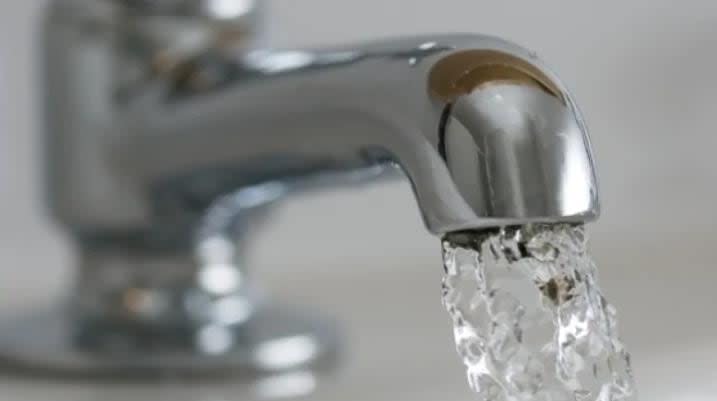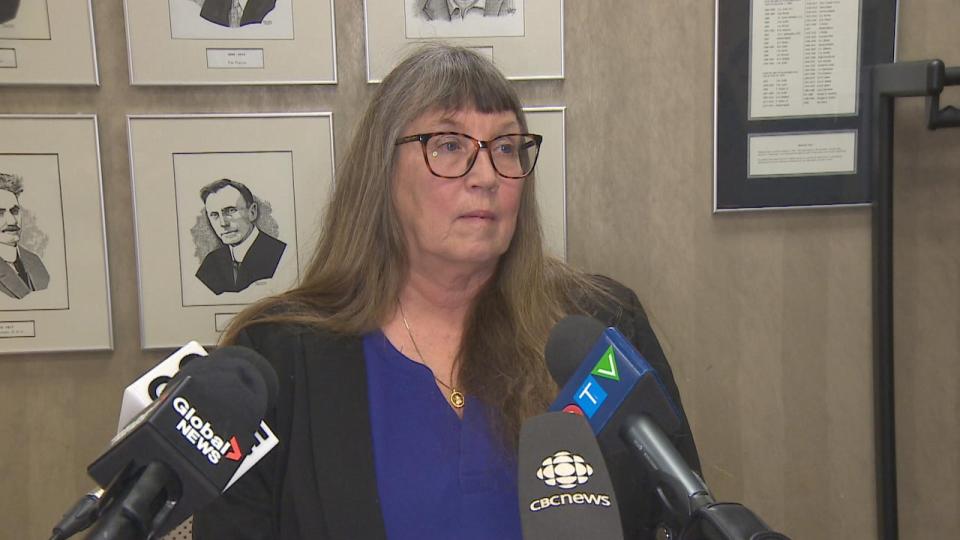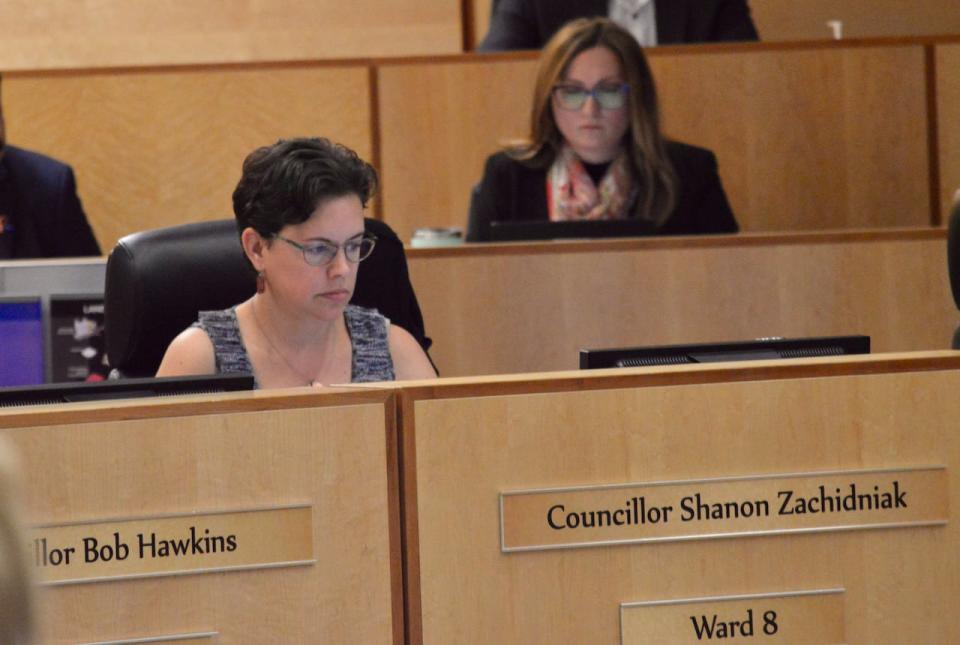Regina city council votes against increasing rebates for homeowners with lead pipes

Regina city council has voted against a proposal to increase utility bill rebates for homeowners whose houses are connected to lead pipes.
Under a city program, households with a lead service connection can receive a free water filter annually, or a $100 rebate for purchasing a filter of their own or bulk water.
A proposal brought to council during budget deliberations Monday would have seen the rebate increase to $350 to also help people buy bottled water, at a cost of $170,000 a year.
The amendment was defeated in a 3-5 vote. Coun. Shanon Zachidniak, who introduced the motion, voted in favour, along with Couns. Jason Mancinelli and Cheryl Stadnichuk.
"I just find the whole thing reprehensible," said Trish Elliott, a volunteer with the group Get the Lead Out, which has been advocating for the replacement of lead pipes in the city since 2021.
"We have kids exposed to extremely high levels of lead in this city. Every effort should be made, every effort. This was a small effort and they didn't rise to the occasion."

Trish Elliott, a volunteer with the advocacy group Get the Lead Out, calls the continuing presence of lead pipes in Regina 'a health disaster unfolding in this city.' (CBC)
The city says it is working to remove all lead service connections by 2036, but Elliott says the continuing presence of lead pipes is "a health disaster unfolding in this city."
"Other cities are pulling out their lead lines a lot faster than this one. Other cities are not waiting 15 years leaving people at risk," she said.
According to the city, privately owned lead connections must be replaced when an adjoining city-owned connection is replaced. Homeowners have to cover the cost themselves, and can choose between several payment options provided by the city.
In the meantime, the city's water filter program is meant to help households that have lead pipes.
According to city administration there are nearly 8,000 privately owned lead service connections in Regina. There were 414 filters distributed in 2022, and 729 in 2023.
Coun. Zachidniak says that the rebate for bottled water she proposed was meant to increase safe water options for households.
"This does not involve us, the city, taking on delivering water, and does respond to the essential concern that not everybody wants to use the filters," she said. "This is a step beyond what we're doing."
Fellow councillors were quick to point out cost concerns for increasing the rebate program, but Zachidniak said it's unlikely that the program would have exceeded the city's budget.

Coun. Shanon Zachidniak introduced the motion to increase rebates for households with lead pipes. (Alexander Quon/CBC)
"We don't spend our budget [for the program] every year," she said. "There's a risk that if everybody did it, we'd be over our budget. But based on past numbers, the chances of it going … to 8,000 [filters] in one year is extremely low, I'd say."
Coun. Lori Bresciani challenged the necessity of increasing the rebate to allow for purchasing bottled water.
"If the filter's available, that's what we should be wanting people to use," she said.
Bresciani said encouraging people to purchase bottled water instead of using already available filters would go against the city's commitment to being environmentally friendly.
After debate, the motion was ultimately defeated.
Elliott says that decision shows council's hesitancy to meet "national standards."
"This was like our last line of defence — if you're not going to get serious and speed up the removal of these lines, at least provide clean replacement water for people," she said.


